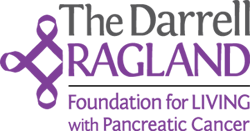When you grow up in the generation of “Trust Your Doctor” there is a lot that can go wrong. My grandfather had always been sick, since childhood he had battled a variety of ailments. Severe depression and anxiety, as well as ulcers so severe they dated back to his early childhood. He had a third of his stomach removed while he was in his forties and for the rest of his life was unable to put on weight.
But he had always maintained his slight frame, even if he never bulked up. But then he started losing weight, rapidly. His back hurt all the time, and he would sit cross legged on a kitchen chair and lean forward, resting his on his folded arms, to relieve the pain. And he was even more deeply, darkly depressed than ever before. Doctor after doctor could do nothing for him. His gastroenterologist told him there was nothing wrong, and referred him to a pain management clinic for “unspecified pain.” He psychiatrist loaded him up with medications, and prescribed electro-shock therapy for his brain. And Grandma tried in vain to tempt his appetite and help him gain some weight. But he had lost all pleasure in eating, and did his best to choke down his Ensure.
We knew something was terribly, terribly wrong when my grandfather was too ill to attend my brother’s wedding, but no one was questioning the doctors, even when they were rude and condescending. My grandmother was working overtime caring for him, and finally her stress levels won. She had a heart attack and landed in the hospital. And then the question came…who would care for them now? I was a young college student who had just moved home, and I realized I was the most obvious person.`
I made it my mission to find out what was really going on with my grandfather. I kept a food diary, and decided to go with him to his doctor’s appointments. When they weighed him and said in a fussy voice, like one that would be used with a baby, “Mr. Christmas, you need to be eating!” I responded by tossing the food diary on the table so they could see exactly what he’d been eating. I demanded that they run some tests. And I left angry that it took a young twenty-something to accomplish what no one else had been able to. I got the docs to listen. Because I didn’t grow up in the “Doctor’s know best” generation. My generation probes and questions and doesn’t take pat answers.
It didn’t save my grandfather. By the time the answer came, it was too late. Pancreatic cancer that had spread to the liver. His death was swift and horrifying. But at least my grandfather didn’t die believing he was crazy. If I hadn’t insisted on better care for him, I believe he would have wasted away and no one would have known why. Perhaps they would blame him for not controlling his depression better.
We know, too late, that the back pain he experienced and the sitting position he used to relieve it was a textbook sign of pancreatic cancer. That his depression was also a classic symptom. And that h.pyorli, the bacteria responsible for the ulcers that plagued his youth, is also one of the chief causes of pancreatic cancer. But I am grateful that we know now, so we can tell his story. And we are grateful that the Darrell Ragland Foundation exists to get this information out to the public. In this day and age it is more important than ever to take control of your own health, do your research and be proactive with your doctors. Without educational and support foundations like the Darrell Ragland Foundation, families will continue to find themselves in the position my family was in, and I hope that no one else is ever in that position.


